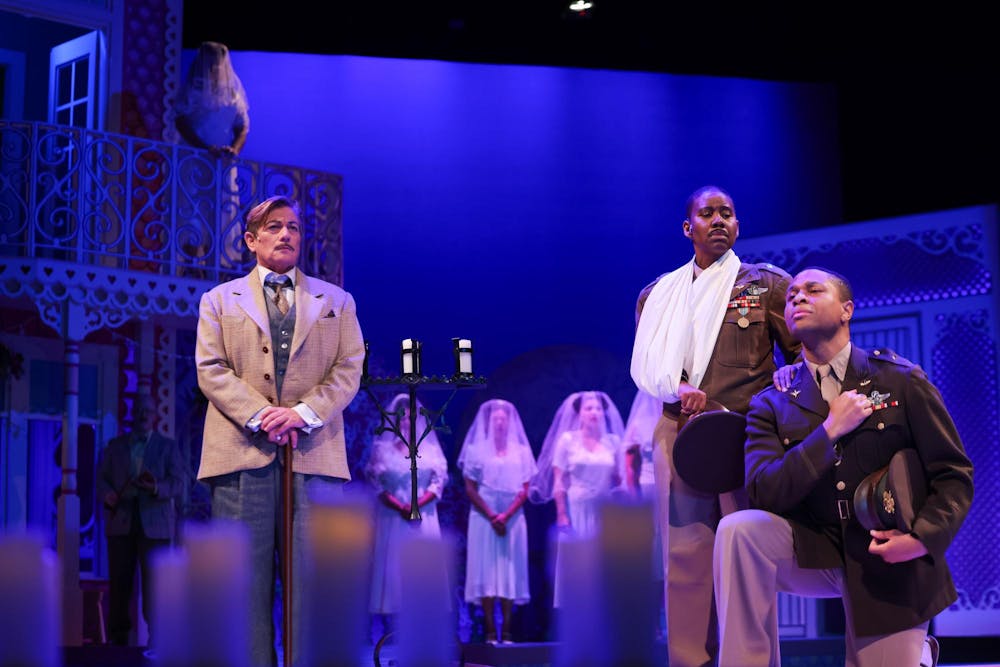A Shakespearean comedy comes to 1940s Appalachia in PlayMakers Repertory Company's rendition of "Much Ado About Nothing."
The play, which opened on Nov. 18, begins with the return of a group of victorious World War II soldiers to the fictional Messina, North Carolina. What follows is a show full of laughter, dancing and heartbreak, set within a picturesque storybook world.
The plot follows the tumultuous relationship between Beatrice and Benedick, who are constantly engaged in a battle of wits and bickering. However, their friends believe their hatred masks a secret romantic fondness and, throughout the play, they scheme to get them together.
This performance marks the return to stage from screen for Aneesh Sheth, who portrays Beatrice. Unlike film and television, she said that the audiences within the theater act as the additional character of the play because she feeds off of their energy while performing.
She said that "Much Ado" is her PlayMakers’ debut and that she was welcomed into the community with open arms, which allowed them to form relationships and further explore deeper moments within the play.
“The way that these actors have all transformed themselves into these roles is just— it's brilliant, it’s really inspiring,” Sheth said.
Vivienne Benesch, the producing artistic director at PlayMakers, said that there is no other Shakespeare play that brings "fabulous fun" energy to the table more than “Much Ado."
“It’s one of my personal favorite Shakespeare plays because it is so filled with wit and heart and an expansive vision for the soul,” Benesch said. “And part of that is not only sort of the rom-com, which it absolutely is, but it’s also expansive in the way it holds space for lessons to be learned— for who we are to grow and change and be.”
She said that when putting on a Shakespeare production, there are always three time zones: the time in which Shakespeare wrote the play, the time period the play is set in, and the moment it is being performed in. Audiences can expect a different experience every time because of the various interpretations.



